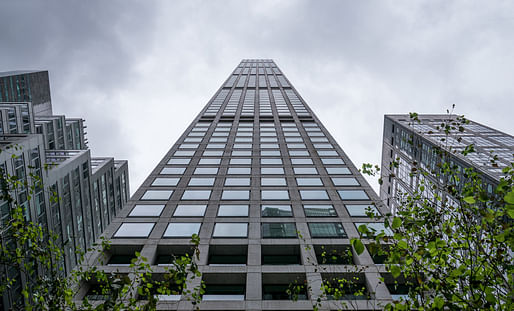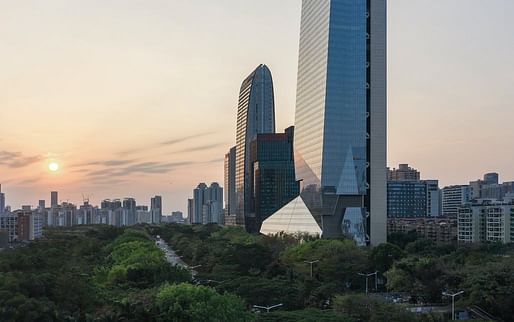

Architects Declare has published an open letter to the Council on Tall Buildings and Urban Habitat, setting out the group’s position on the environmental cost of skyscrapers. The letter, published on the Architects Declare website, was originally sent to CTBUH in July but has now been made public after the group claims not to have received any response.
“The evidence now is overwhelming that tall buildings hinder, rather than assist, our efforts to address key challenges of climate breakdown, resource depletion and biodiversity loss,” the letter reads. “Today, UK Architects Declare is therefore calling on CTBUH to transform its register of ‘The World’s Tallest Buildings’ and shift its focus from a fixation on height to the other part of its mission, Urban Habitats. and crucially address critical environmental challenges.”

The letter claims that CTBUH’s register of tall buildings, which it has maintained since the 1980s, promotes an emphasis on the accolades of height which is “totally at odds with addressing the planetary emergency.” The letter backs up its claims by citing research carried out by University College London which found that high-rise office and residential towers underperform versus lower-rise schemes with regards to electricity use, density, and greenhouse gas emissions. Architects Declare also cite a study by Arup engineer Tim Snelson that a typical skyscraper will have at least double the carbon footprint of a ten-story building with the same floor area.
“The unavoidable fact is that, in terms of resource efficiency, the embodied carbon in their construction and energy consumption in use, skyscrapers are an absurdity,” the letter reads. “The amount of steel required to resist high windspeeds, the energy required to pump water hundreds of metres above ground and the amount of floorspace taken up by lifts and services make them one of the most inefficient building types in a modern metropolis.”
“It could also be argued that skyscrapers further detach us from any meaningful relationship with the natural world,” the letter adds. “Above about ten storeys, balconies don’t work because it is simply too windy, so high-rise apartments are hermetically sealed – as isolated from nature as possible.”
In calling for CTBUH to alter its focus from ‘tall buildings’ to ‘urban habitats’, the letter points to the benefits of compact cities such as Barcelona and Paris, which Architects Declare suggests strike a “Goldilocks density” of being compact enough to accommodate a large population, but not so dense as to reduce green space or inhibit direct sunlight at street level.
“This article started with a brief history of how skyscrapers came to be symbols of progress. To growing numbers of people they now represent extravagant status symbols and profligate ways for cities to compete and the super-rich to invest in property,” the letter concludes. “For those that might still claim that skyscrapers are symbols of progress, the evidence is clear they now represent progress towards societal collapse.”
2 Comments
agree with the conclusions, for the most part, but not sure of the tone or the details.
Barcelona is famous for its difficulties with green space, hence the superblock experiment. One of the coolest places on earth but definitely not the the goldilocks example imagined. The main issue in Barcelona is not that tall buildings are not efficient but that development is not equitable, and that includes green space. Reductive statements are not helpful.
William McDonough is a problematic figure at times but he made a pretty good argument when he pointed out that efficiency is not the best thing to be reductive about when it comes to architecture. Its kind of a sink-hole that leads to a lot of dismal conclusions and allows business-as-usual habits to continue for too long. All in the name of becoming less-bad, not actually better.
The reasons for not building skyscrapers are so numerous you'd think they would have been outlawed by now. Similar to our love affair with the car, skyscrapers are a relic of a time when we where wowed by the latest technological innovation. Efficiency and true environmentalism needs to be redefined to include all the non-quantifiable aspects of place making like how these places will do in an era of climate change, to say nothing about the social problems exacerbated by new tech. Anyone care to hang out in the metaverse?
Block this user
Are you sure you want to block this user and hide all related comments throughout the site?
Archinect
This is your first comment on Archinect. Your comment will be visible once approved.